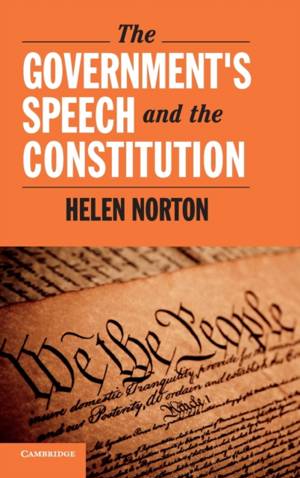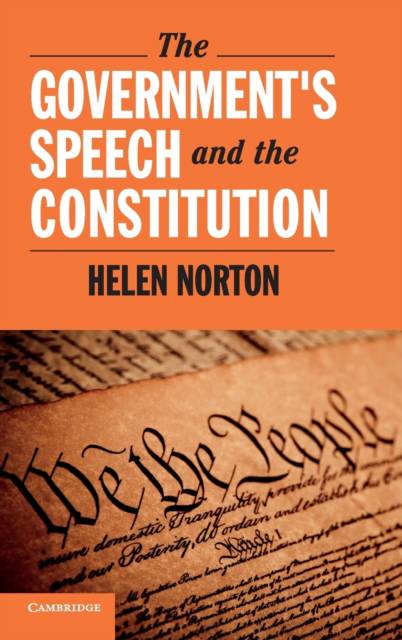
- Afhalen na 1 uur in een winkel met voorraad
- Gratis thuislevering in België vanaf € 30
- Ruim aanbod met 7 miljoen producten
- Afhalen na 1 uur in een winkel met voorraad
- Gratis thuislevering in België vanaf € 30
- Ruim aanbod met 7 miljoen producten
Zoeken
Omschrijving
When we discuss constitutional law, we usually focus on the constitutional rules that apply to what the government does. Far less clear are the constitutional rules that apply to what the government says. When does the speech of this unusually powerful speaker violate our constitutional rights and liberties? More specifically, when does the government's expression threaten liberty or equality? And under what circumstances does the Constitution prohibit our government from lying to us? In The Government's Speech and the Constitution, Professor Helen Norton investigates the variety and abundance of the government's speech, from early proclamations and simple pamphlets, to the electronic media of radio and television, and ultimately to today's digital age. This enables us to understand how the government's speech has changed the world for better and for worse, and why the government's speech deserves our attention, and at times our concern.
Specificaties
Betrokkenen
- Auteur(s):
- Uitgeverij:
Inhoud
- Aantal bladzijden:
- 250
- Taal:
- Engels
- Reeks:
Eigenschappen
- Productcode (EAN):
- 9781108417723
- Verschijningsdatum:
- 3/10/2019
- Uitvoering:
- Hardcover
- Formaat:
- Genaaid
- Afmetingen:
- 163 mm x 235 mm
- Gewicht:
- 453 g

Alleen bij Standaard Boekhandel
+ 374 punten op je klantenkaart van Standaard Boekhandel
Beoordelingen
We publiceren alleen reviews die voldoen aan de voorwaarden voor reviews. Bekijk onze voorwaarden voor reviews.











